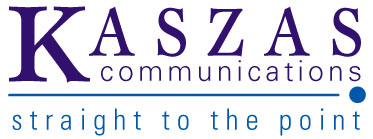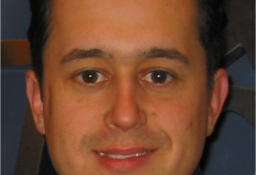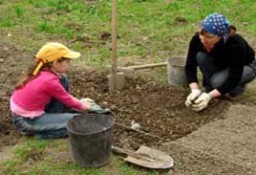When I first met her in 2005, Natalie Zend was on sick leave due to severe back pain and had some big decisions to make. She had a permanent position as a Senior Policy Analyst in the Children’s Rights and Protection Unit at a federal agency. She was weighing the pros and cons of a career change.
She was considering several options: promotion within the agency; or, a field posting; or an exchange with an NGO, university or international organization abroad; or, work as an independent consultant. In her early thirties, she wanted more work-life balance, a better integration between her personal and professional interests. And, she wanted more clarity about what would be the best choice over the long term.
She wrote detailed stories about times in her life when she was doing what she enjoyed most. Also, I provided her with a set of questions to help her reflect on her deepest values and highest aspirations. She was at a significant career crossroads. Ultimately, she would have to choose between being practical, realistic and staying the course of stability; or, determining what she valued most and seek a career that honoured those values.
As she wrestled with the implications of her JobJoy Report and the choices confronting her, she realized with increasing conviction that she wanted more direct contact with others and more meaningful open dialogue. She formulated a vision statement based on her deepest values. “My vision for my work in the world is to foster personal and social transformation for a life-sustaining society, by supporting social justice and environmental change agents in their work.”
Wrestling with transition fears
In the summer of 2006, Natalie took a one year unpaid leave from her job. She wanted to travel, as she had the agency, and to continue to help others through her work, but also have more time to pursue her goals in accordance with her values. “I wanted to centre myself and determine what I wanted with one-on-one support and guidance. I wanted to make my next move based on a sense of direction and priorities.”
Natalie said she “spent many months during her sabbatical looking at her fears of leaving her job: ending up on the streets, penniless, without respect or professional identity.” It takes courage to confront our fears and to take responsibility for what we really want. Natalie realized that returning to her job would have been “out of fear of doing something different.”
This is a fear of negative consequences. As individuals, we spend a lot of time and energy trying to avoid the negative consequences of decisions. But, truthfully, we cannot read the future; we don’t know what will happen. Without that certainty of what will happen, many of us “choose the devil we know, rather than what we don’t know.”
Fear to change is natural and normal. To get out of a reactive mode of living, we need, I suggest, to move into a creative mode of thinking, by focusing on what it is we really want to create for our lives.
Based on her JobJoy Report, Natalie had a clear picture of who and what she is in terms of her right work, and how she operates naturally and effortlessly when she is doing what she enjoys most. But she needed time and space to think about how the what connects to the why. Why do I want to do that, i.e. change my life to align with my motivational pattern?
Organizing principle for successful change
Answers to the WHY questions of life give us the organizing principles for the WHAT we do. Once we have the WHY questions answered (at least in part) then it’s a question of figuring out HOW to manifest our values and priorities–what really matters to us–how do I make a living? How do I decide what to do with my time and energy? How do I increase my chances of being successful at what I want to do? That is the challenge of every adult, and that was exactly the challenge Natalie faced with courage and conviction.
She “longed for freedom, authenticity, and growth in the direction of greater connection to spirit, self and others.” She felt exhilarated and inspired that the needs she had met through her work at the agency could be met through other means and strategies. At the conclusion of her sabbatical, Natalie was at a decision point: return to the safety and security of a full-time government position; or, go out on her own. In one giant leap of faith, Natalie determined to follow her spirit and disavow the “safe and reasonable” judgment born from her upbringing.
“George helped me see the gift in what has been a lifelong source of anxiety and insecurity for me—my tendency to try to live up to what I perceive as others’ expectations of me. He helped me understand that my natural talents—rather than the job market, perceived societal or family expectations—could be a primary basis for choosing or creating my work. “
Taking effective actions to make change real
Natalie gave notice to her employer, and packaged her skills and vision as an independent consultant, specializing in training, facilitation, analysis and children’s rights. She would build on the relationships and experience she had accumulated working 10 years in international development and refugee policy and programming, primarily in children’s rights, human rights approaches to development, conflict resolution, peace building and gender equality.
“George helped me recognize that I am a ‘visionary’ who instills people with enthusiasm and that I thrive in situations where I can act as a coach, trainer, facilitator or coordinator. I eventually saw that playing those roles as an internal or external consultant—a third-party neutral—could be a valid and effective way to exercise leadership for positive social change.”
In order to attain her highest aspirations, Natalie decided to build on her BA in History and her Master’s in International Affairs with further education. In 2010, she was designated a CTDP (Certified Training and Development Professional) and received a Certificate in Adult Training and Development. The certifications, Natalie says, “increased my credibility and competence and have enabled me to increase my skillfulness, presence, confidence and personal impact.”
Much of her consulting work has focused on helping organizations in Canada and around the world to design, implement and report on rights-and-results-based programs that more effectively implement positive change for children. She has also supported diverse stakeholders in an organization or project to reach shared understanding and commitment through events that offer an unprecedented space for mutual learning and dialogue.
Finally, she helps leaders who are overwhelmed with the state of our world to connect to a greater sense of hope and contribution through workshops drawing on deep ecology, systems theory, and other transformational tools.
Natalie has also continued her personal growth through education, travel and daily practice. She has studied and practiced facilitation, monitoring and evaluation, leadership and communication. She is fulfilling her goal for a more balanced life with greater connection to self, spirit and others.
She also has studied and applied a variety of group methodologies: The Work that Reconnects, Awakening the Dreamer, Open Space Technology, NonViolent Communication, Appreciative Inquiry, Participatory Learning and Action, and Process Work, as well as practiced and facilitated improvisational voice and movement and mindfulness meditation. Mindfulness and spiritual practice have led Natalie to retreats in France with Thich Nhat Hanh and to India where she studied with the Dalai Lama.
“George helped me realize I could contribute to life and make a living through a career path that is a unique expression of my calling and talents. He helped me to recognize, accept and build on my natural gifts and inclinations rather than trying to be someone else.Becoming a consultant has given me the time and flexibility to integrate spiritual practice into my daily routine, and to do spiritual community support and leadership work that does not always pay. In my paid work, I have been able to share my values and practices openly and authentically with colleagues and partners. Embodying my values in my work is very important to me. My primarily goal in work is to contribute to life and well-being of people and the planet.”
Contact Natalie at andizend@yahoo.ca or 647-300-6102 for more information about her work and workshops.








